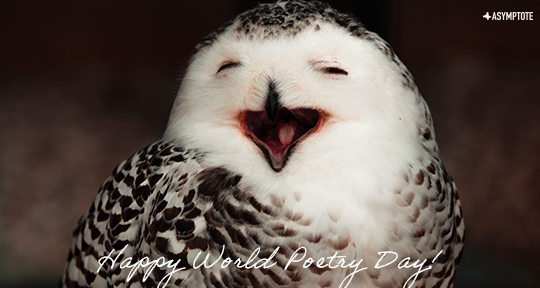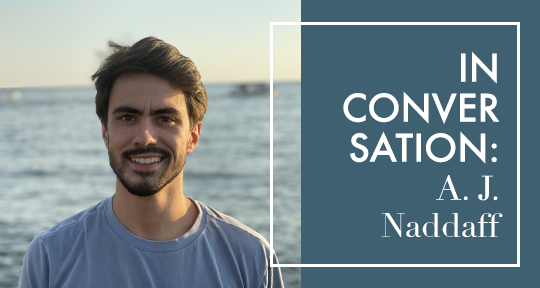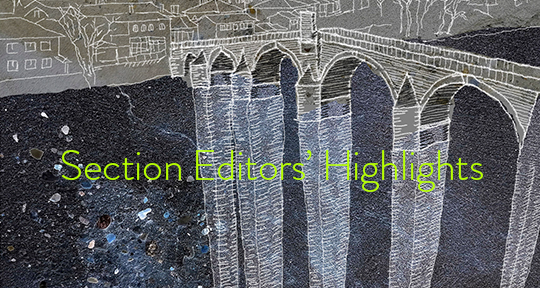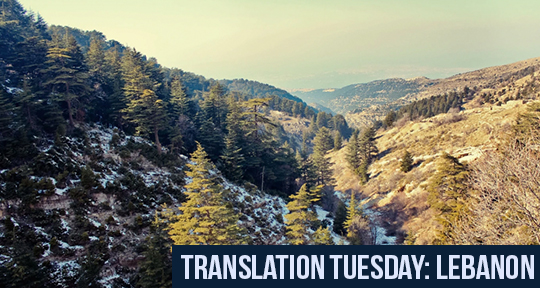This week, our writers bring you news from Hong Kong, Lebanon, and Taiwan. In Hong Kong, Voice & Verse Poetry Magazine is publishing a special section on Myanmar writing; in Lebanon, poet Zeina Hashem Beck’s second poetry collection will be published by Penguin; and in Taiwan, the 2021 Taipei Literary Festival has kicked off. Read on to find out more!
Jacqueline Leung, Editor-at-Large, reporting from Hong Kong
In a show of solidarity to the resistance efforts in Myanmar, Voice & Verse Poetry Magazine is publishing an English-language section on Myanmar, to be edited by poet, writer, and academic Tammy Lai-Ming Ho. The magazine will accept submissions until March 30 and has already announced that it will include some works in translation. So far, Thiri Zune’s translation of Nay Thit’s “With the Teeth of a Mad Flower” and Ko Ko Thett’s translation of Aung Khin Myint’s poem “Spring” will be in the upcoming issue. Both are timely responses to the military coup which has killed well over 200 people, including poets Myint Myint Zin and K Za Win, and has caused countrywide Internet blackout and crackdowns on the media. While international condemnation of Myanmar’s military leaders is escalating, many in Hong Kong identify with the resistance from the onset, especially with the fresh memory of the city’s own protests.
In addition to its efforts for Myanmar, Voice & Verse held an event discussing the American poet Louise Glück, winner of the 2020 Nobel Prize in Literature, on World Poetry Day (March 21, 2021). Hosted by writer, poet, and critic Ian Pang in Cantonese, the event discussed Glück’s oeuvre, from her first poetry collection Firstborn (1968) to more recent works.
Works in translation also feature prominently in the forty-fifth Hong Kong International Film Festival, set to take place between April 1 and 12. With over 190 titles from fifty-eight countries and regions, the festival is proceeding in a hybrid format with in-theatre and online screenings as well as director discussions. This year’s showcase includes Wife of a Spy directed by Kurosawa Kiyoshi and Andrei Konchalovsky’s Dear Comrades!, which recently won Best Director and the Special Jury Prize respectively at the 2020 Venice International Film Festival; Golden Globes Best Foreign Language Film winner, Minari, by Korean-American director Lee Isaac Chung; and Japanese masterpieces in the event of Shokichu Cinema’s 100th anniversary. These already rich offerings are accompanied by a selection of newly restored classics from world and Chinese-language cinemas, recalling Parasite director Bong Joon-ho’s Golden Globe statement, that once one overcomes the one-inch barrier of subtitles, one gains access to many more amazing films and works of art.
MK Harb, Editor-at-Large, reporting from Lebanon
2022. Since the start of the pandemic and the global vaccine roll out, a number of hopes, projects, and “return to normal” discourse have been thrown onto that year. However, here at Asymptote, we are excited to hear that acclaimed Lebanese Poet Zeina Hashem Beck will debut a poetry collection with Penguin Books in the summer of 2022! Titled O, the collection will be a meditative reflection on the letter O and its numerous meanings. Hashem Beck previously won the 2016 May Sarton New Hampshire Poetry Prize for her book Louder than Hearts.
March is usually a generous month to us and we will share this generosity through some exciting Arab literature reading lists! The Arab lit Quarterly Spring issue is out with exciting writings and translations on the theme of “Song.” Guest edited by investigative journalist Karim Zidan, this issue has a far-reaching range from tenth-century poetry by the polymath Kushajim (in translation by Salma Harland) to a journey through Palestinian resistance folk music with Shaimaa Abulebda. Another reading list we are excited about is the Sheikh Zayed Book Award shortlist! Dominated by women authors from the Arab world, the list includes authors from Egyptian Iman Mersal to Lebanese Alawiya Sobh. Happy reading!
In translation highlights, acclaimed Lebanese author Hoda Barakat’s novel, which won the 2019 International Prize for Arabic Fiction, is out now with an English translation and a controversial title! Translated by another acclaimed translator, Marilyn Booth, the title of “Voices of the Lost” is seen by some as reductive to the devastating stories of migrants in the novel. Another work we are enamored with is the collection of short stories A Bed for the King’s Daughter written by Syrian author, Shahla Ujayli, whose past work was long listed for the International Prize for Arabic Fiction. The collection, translated by Sawad Hussain, with an important forward on biases in the literary market, uses surrealism and humor to address many of modernity’s malaises from alienation to the patriarchal gaze. READ MORE…











What’s New in Translation: August 2021
New work this month from Lebanon and India!
The speed by which text travels is both a great fortune and a conundrum of our present days. As information and knowledge are transmitted in unthinkable immediacy, our capacity for receiving and comprehending worldly events is continuously challenged and reconstituted. It is, then, a great privilege to be able to sit down with a book that coherently and absorbingly sorts through the things that have happened. This month, we bring you two works that deal with the events of history with both clarity and intimacy. One a compelling, diaristic account of the devastating Beirut explosion of last year, and one a sensitive, sensual novel that delves into a woman’s life as she carries the trauma of Indian Partition. Read on to find out more.
Beirut 2020: Diary of the Collapse by Charif Majdalani, translated from French by Ruth Diver, Other Press, 2021
Review by Alex Tan, Assistant Editor
There’s a peculiar whiplash that comes from seeing the words “social distancing” in a newly published book, even if—as in the case of Charif Majdalani’s Beirut 2020: Diary of the Collapse—the reader is primed from the outset to anticipate an account of the pandemic’s devastations. For anyone to claim the discernment of hindsight feels all too premature—wrong, even, when there isn’t yet an aftermath to speak from.
But Majdalani’s testimony of disintegration, a compelling mélange of memoir and historical reckoning in Ruth Diver’s clear-eyed English translation, contains no such pretension. In the collective memory of 2020 as experienced by those in Beirut, Lebanon, the COVID-19 pandemic serves merely as stage lighting. It casts its eerie glow on the far deeper fractures within a country riven by “untrammelled liberalism” and “the endemic corruption of the ruling classes.”
Majdalani is great at conjuring an atmosphere of unease, the sense that something is about to give. And something, indeed, does; on August 4, 2020, a massive explosion of ammonium nitrate at the Port of Beirut shattered the lives of hundreds of thousands of people. A whole city collapsed, Majdalani repeatedly emphasises, in all of five seconds.
That cataclysmic event structures the diary’s chronology. Regardless of how much one knows of Lebanon’s troubled past, the succession of dates gathers an ominous velocity, hurtling toward its doomed end. Yet the text’s desultory form, delivering in poignant fragments day by elastic day, hour by ordinary hour, preserves an essential uncertainty—perhaps even a hope that the future might yet be otherwise.
Like the diary-writer, we intimate that the centre cannot hold, but cannot pinpoint exactly where or how. It is customary, in Lebanon, for things to be falling apart. Majdalani directs paranoia at opaque machinations first designated as mechanisms of “chance,” and later diagnosed as the “excessive factionalism” of a “caste of oligarchs in power.” Elsewhere, he christens them “warlords.” The two are practically synonymous in the book’s moral universe. Indeed, Beirut 2020’s lexicon frequently relies, for figures of powerlessness and governmental conspiracy, on a pantheon of supernatural beings. Soothsayers, Homeric gods, djinn, and ghosts make cameos in its metaphorical phantasmagoria. In the face of the indifferent quasi-divine, Lebanon’s lesser inhabitants can only speculate endlessly about the “shameless lies and pantomimes” produced with impunity. READ MORE…
Contributors:- Alex Tan
, - Fairuza Hanun
; Languages: - French
, - Hindi
; Places: - India
, - Lebanon
; Writers: - Charif Majdalani
, - Geetanjali Shree
; Tags: - Beirut 2020 explosion
, - diary
, - disaster
, - Indian Partition
, - motherhood
, - recovery
, - social commentary
, - trauma
, - womanhood